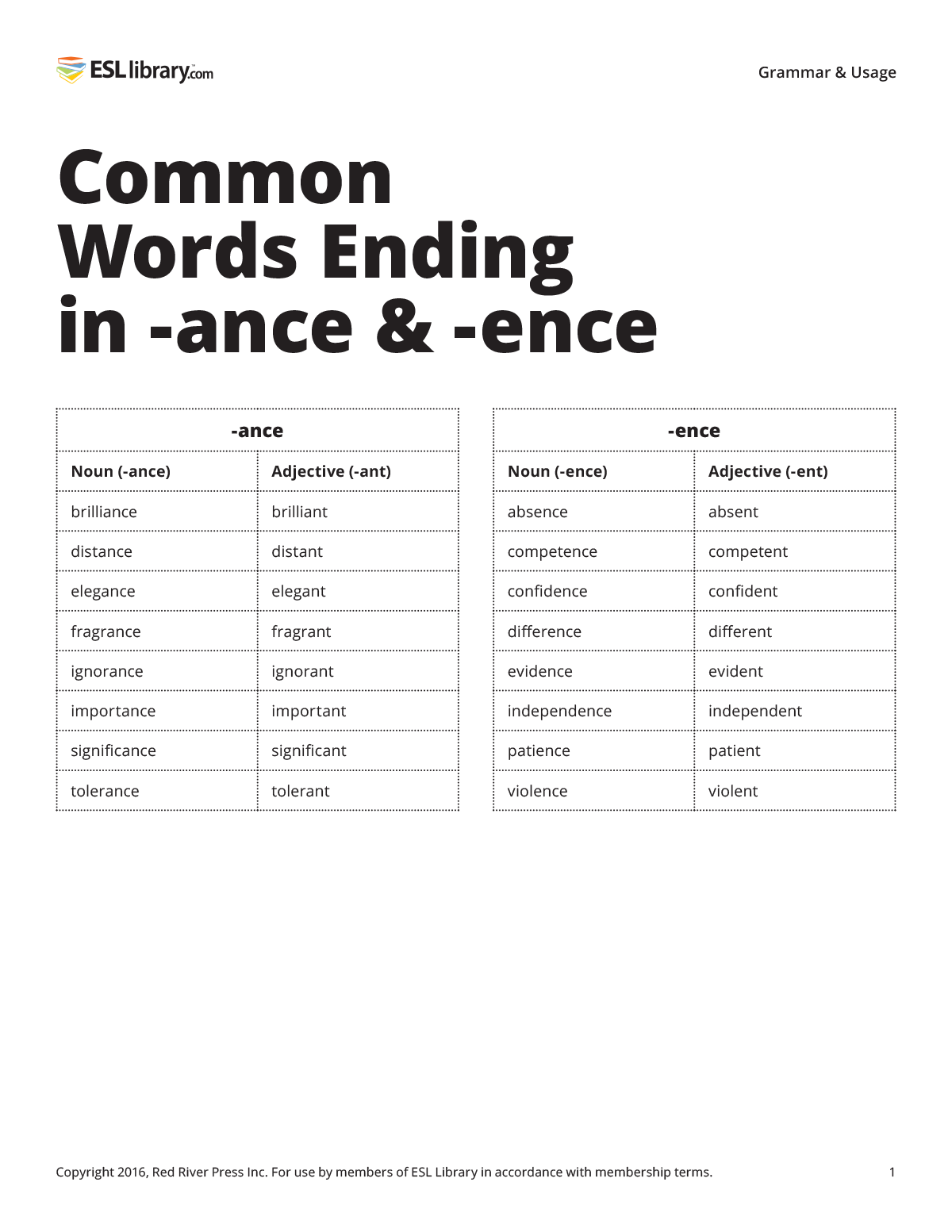Unlike languages such as Spanish or Japanese, English pronunciation doesn’t reflect the spelling of many of the words in the language. English speakers and language learners alike have trouble remembering the spelling of certain words. For me, one of those words was “independence.” I could never remember if it ended in ‑ance or ‑ence!
When I started teaching English years ago, I finally memorized “independence” so that I wouldn’t make a mistake when teaching my students. Over the years, I often saw students (especially my TOEIC students) struggling with the spelling of ‑ance/‑ence nouns and ‑ant/‑ent adjectives. I found that giving them a reference list and reviewing the words from time to time was helpful, so I decided to create a printable list for this blog post. With Independence Day right around the corner, what better time to review the spelling of these suffixes?
Word List
Common Words Ending in ‑ance & ‑ence – Grammar & Usage Resources
Notes
Note #1
Point out to students that there is no difference in pronunciation between ‑ance and ‑ence (or between ‑ant and ‑ent). This is because these suffixes don’t carry any stress and are both pronounced with the unstressed schwa sound /ə/. (I.e., the last syllable in “importance” sounds exactly the same as the last syllable in “independence”—the same goes for “important” and “independent.”)
Note #2
There are other ‑ance nouns that don’t have corresponding ‑ant adjective forms, such as appearance, performance, substance, and tolerance. Similarly, common ‑ence nouns that don’t have corresponding ‑ent adjective forms include audience, consequence, experience, preference, and sentence.
If you want to get into more detail with your students, the Oxford Dictionaries blog has a great article on spelling tips for words ending in ‑ance and ‑ence.



